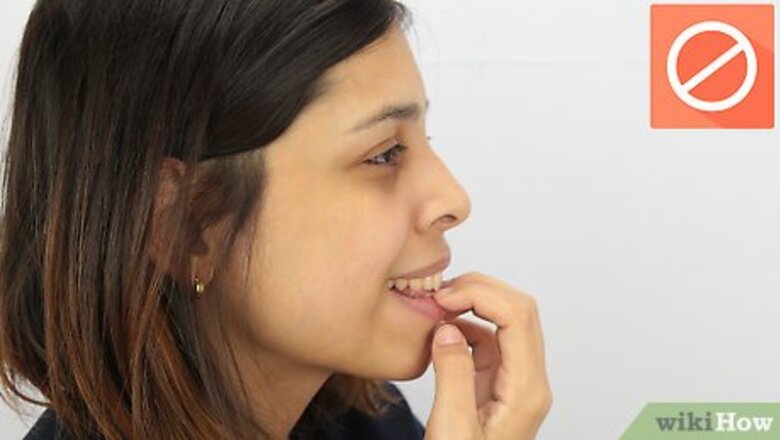
views
Growing Out Your Nails
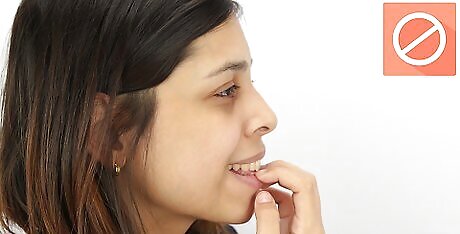
Stop biting your nails. Biting your nails keeps them from growing strong. When you bite them off you're actually tearing the nail, which weakens it all the way to the nail bed. The saliva from your mouth also softens your nails, making them more prone to getting torn or broken. Biting your nails is a habit that's hard to break, but it's the first major step to having nice-looking nails! You can buy products that will keep you from biting your nails by making them taste funny. Reward yourself for a job well done by giving yourself an amazing manicure when you've let your nails grow for a couple of weeks without biting them.

Try not to use your nails as tools. Do you tend to use your nails to scrape stickers off of bottles, pop open cans, and perform other tasks? This puts stress on your nails that leads to them cracking and getting weaker. While it's impossible to completely stop using your nails as tools - after all, that's why you have them in the first place! - being more mindful of how you use your nails can help save them from getting banged up.
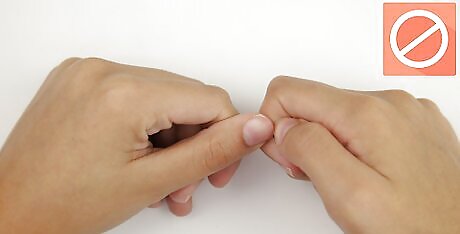
Avoid scraping nail polish off the surface of your nails. If you tend to pick off your nail polish, please stop. This tears up the surface of your nails, making them fragile and easy to break. When you're done with your manicure, remove the polish in a gentle way. You'll notice a big difference.
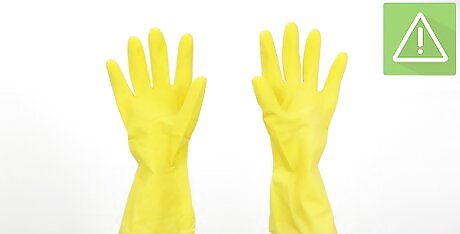
Don't use abrasive products on your nails. If your nails are naturally prone to breaking, using harsh products on them is going to make the situation a lot worse. For example, acetone, the ingredient that strips nail polish from nails, is extremely drying and can make nails start to chip if you use it too often. Even nail polish usually has ingredients that can be harsh on your nails. Give them a break for a few weeks to recover from products - they'll grow back in strong and shiny. An alternative to harsh, drying polishes are water based nail polishes which use water as a base instead of drying chemicals. Dish soap and other detergents can be tough on nails. Wear gloves when you're cleaning your house or dishes. Use a moisturizing hand soap when you wash your hands.
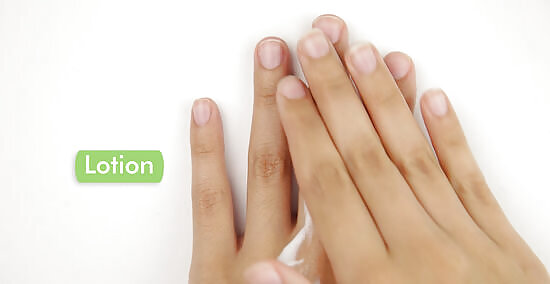
Apply lotion or oil to your hands and nails. In order to combat dryness, regularly apply some lotion or oil to your hands. Almond oil and jojoba oil are particularly good for nails. This will protect your nails from drying chemicals and extreme temperatures that typically lead to damage. You can also use nail strengtheners with vitamins in them. Avoid using mineral or baby oil, which will only coat your nails rather than moisturize. If you work outside in the elements, it's especially important to use lotion. Protecting your hands and nails with gloves or mittens will also be a big help.
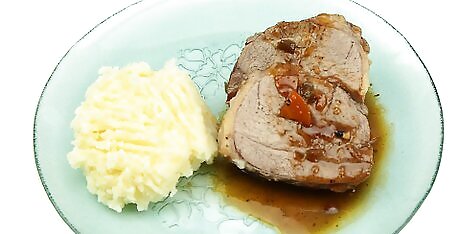
Eat nutritious foods. If your diet is lacking certain nutrients, that'll show up in your nails. It can cause them to look dry, ridged, or even discolored, and it leads to more breakage than usual. The solution? Eat plenty of foods that contain the vitamins and minerals your body needs to produce healthy nails. As a bonus, the same foods will do wonders for your hair, too! Eat plenty of protein, since this is what nails are made of. Fish, poultry, pork, spinach, and beans are all good sources of protein. Eat foods rich in biotin, the B vitamin, which is found in nuts, fish, eggs and liver. Eat zinc and vitamin C. Also eat foods rich in calcium.
Maintaining Your Nails
Trim your nails regularly. Every few weeks, you should trim your nails using nail clippers or a nail scissors. If you're growing long nails, be sure to file the edges once a week to keep cracks from forming. Don't trim your nails too short. Leave at least a sliver of white crescents on your nails. This will let them grow stronger and result in a much prettier manicure.
File your nails. Use a nail file to smooth away any rough areas at the tips of the nail. Only file in one direction using a light motion. Try not to make them too round, because that puts you at risk for getting ingrown nails! Using a crystal file can cause less damage than rougher grained sandpaper files. Don't file using a back and forth motion. This weakens your nails and rips up the fibers. Instead, file in only one direction, being careful not to apply too much pressure.
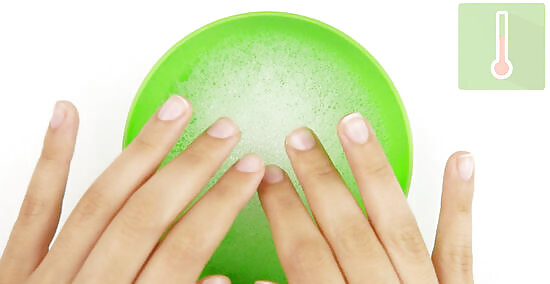
Soak your nails. This will soften them up so you can push back your cuticles and file them. Soak them in warm water. You can add a little oil if you'd like, to help soften your nails and cuticles. Be careful not to do this too often, wet nails expand and shrink when dry, this can cause cracks to form over time.
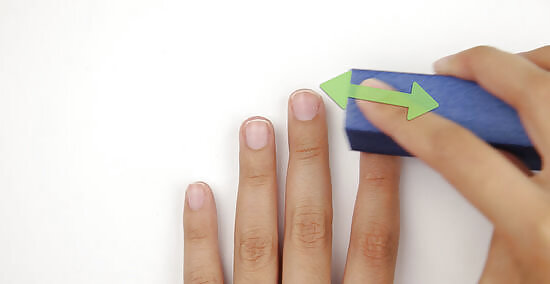
Buff your nails. Use a nail buffer to buff the surface of your nails. Start with the coarsest side of the buffer, then move to the finest. Your nails should be shiny when you're finished.
Push back your cuticles. Use a cuticle pusher to gently push the cuticles toward the nail beds. Don't push them back too much, and take care not to rip or tear them. Never trim your cuticles with a cuticle trimmer. This leaves an open wound at the base of your nails, making you prone to getting an infection.
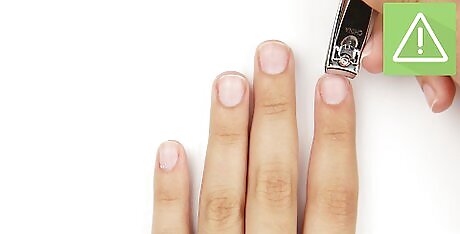
Keep them maintained. When your nails are the desired length, just file or clip the nail every now and then to maintain its shape and stop the nails from growing too long.
Painting Your Nails
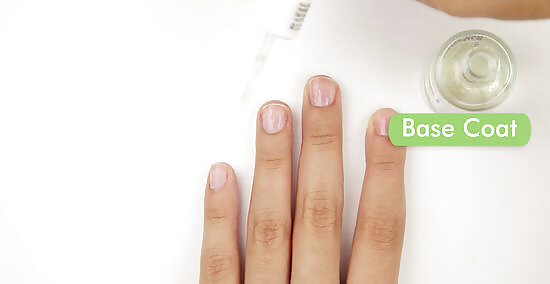
Start with a base coat. Get a bottle of clear or natural nail varnish and give every nail a coat of polish. Alternatively, if you have fragile, brittle, or weak nails you can use a nail hardener instead of clear varnish. Let it dry completely before moving on.
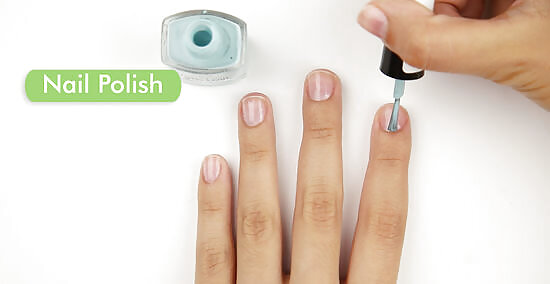
Paint your nails with polish. Choose the polish color you like and apply it carefully to each nail. Using the right painting technique will help your nails look like they were done by a professional. Here's how to do it: Dip your brush in the bottle and brush it against the opening so that you have one small drop of polish on the end of the brush. Too much polish will result in a mess. Paint a vertical stroke in the middle of your nail first nail - usually your thumb. Start at the base and paint all the way to the tip. Paint another stroke on the left side, and one on the right side. Re-dip the brush if necessary. Blend with more vertical strokes. Continue with the rest of your nails until they're all painted.
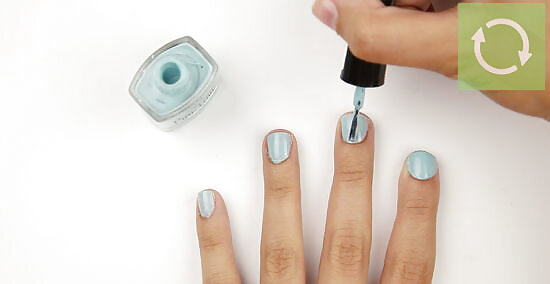
Do a second coat. Depending on what color nail polish you used, you might want to do a second coat to make it look completely opaque. Make sure the first coat is completely dry first.
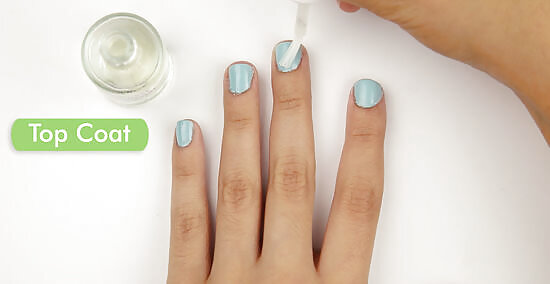
Add a top coat. After the polish is completely dry, add one more clear topcoat. This will seal your manicure so it doesn't chip for a week or two.
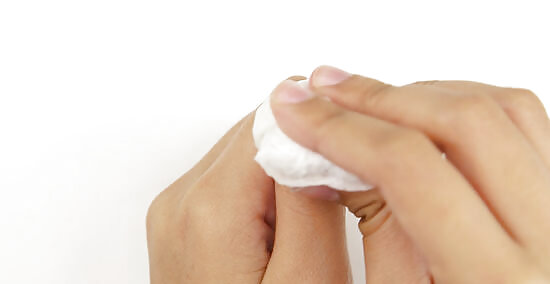
Remove the polish when it's time. When the nail varnish starts to chip beyond repair, use a gentle nail polish remover to get rid of the nail polish. Make sure the remover does not contain acetone and be very gentle. Instead of acetone, look for a remover that contains ethyl acetate. If you are using a water based nail polish keep in mind that removers for conventional polishes won't work; you will need to buy a remover specifically made for water based polishes. Be careful when removing polish, harsh scrubbing will damage the nails. Giving your nails a break after you remove the polish is a good idea. Wait a week or two before painting them again.




















Comments
0 comment